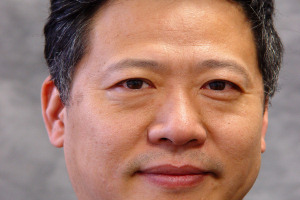May 29 2014
Three University of Manchester scientists have been awarded esteemed Wolfson Research Merit awards by the Royal Society.
 Professor Lin Li was one of three Manchester scientists to win the honour
Professor Lin Li was one of three Manchester scientists to win the honour
Professor Françoise Tisseur, in the School of Mathematics, won the prize for her work on 'new approaches to numerical solution of nonlinear eigenvalue problems'.
Professor Tisseur is a numerical analyst specialising in numerical linear algebra. Her work spans the full range from developing fundamental theory to deriving algorithms and implementing them in software.
Professor Lin Li, in the School of Mechanical, Aerospace and Civil Engineering, received his Wolfson Research Merit Award for his research in laser nano-fabrication and nano-imaging.
Professor Richard Grencis, in the Faculty of Life Sciences, made it a Manchester hat-trick for his work on ‘understanding parasitism: survival and immunoregulation of parasitic nematodes’.
The Royal Society Wolfson Research Merit Award is given to individuals of proven outstanding ability to undertake independent research and is for a period of five years. Just 28 were awarded this year.
Jointly funded by the Wolfson Foundation and the Department for Business, Innovation and Skills (BIS), the scheme aims to provide universities with additional support to enable them to attract science talent from overseas and retain respected UK scientists of outstanding achievement and potential.